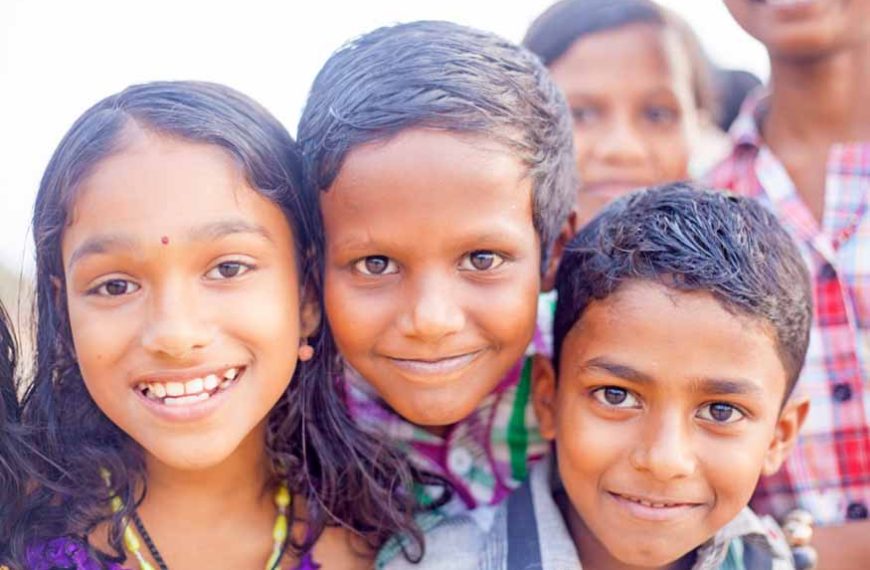“Primary education forms the bedrock of development. It is in primary school that children learn foundational skills that prepare them for life, work and active citizenship. Quality education empowers children and young people, safeguards their health and well-being, and breaks cycles of poverty. It also empowers countries, ushering in economic prosperity and social cohesion.”
UNICEF
Education is the key to opening new horizons of thoughts, avenues, and pathways. Believe it or not, most of India’s population is still on the threshold of receiving a decent education. Education in India is still on the rise and can achieve great heights. It is one of the critical factors that determine a person’s income, and in turn the national income of a country. You may be wondering what primary education is and why it is needed. If you are, there’s a reasonable explanation for it. Nevertheless, primary education belongs to the basic education for children.
What Is Primary Education?
In India, education can be segregated into numerous phases. However, when considering primary education, it generally covers classes 1 to 7. The existence of private as well as Government schools in India allows both the affluent and the underprivileged to receive a decent education. The Constitution of India provides for free primary education up to the age of 16. This ensures that almost all children are equipped with the basic tools to earn a living in the future. Now that you know why primary education is essential for the overall growth of your little ones, it’s time we delved further into the concept of primary education.
Do you know the objectives of primary education?
Also Read – Importance of school In Childs Life
5 Essential Goals of Primary Education
- To establish the basics of education, providing children with the means to tackle basic problems in life.
- To inculcate in children basic mannerisms and codes of conduct in society.
- To ensure that children receive an elementary level of education that is in line with jobs that pay a minimum remuneration.
- To allow students to develop their talents and hobbies that play a vital role in character formation.
- To develop the emotional framework of children from a young age. These are the five objectives of primary education.
Understanding the Significance of Primary Education- 4 Important Factors
- Encourage literacy
- Developing habits
- Aesthetic beauty and civic responsibility
- Character building
- Creating team spirit
- Social development
Literacy is defined by an individual’s ability to read and write. If kids in India are taught to read and write which is the very foundation of primary education, the literacy rate of the country will increase tremendously. It not only benefits the country but also the family of the individual as they stand to gain an earning member in the household.
The importance of primary education can be seen in various avenues of life. One of them happens to be in the habits that your little ones develop. Habits form at a very young and sensitive age. The popular saying that “Kindness begins at home”, has been passed down through the ages. It is indeed true that manners and basic etiquette can be inculcated in children at the primary level of education. This, in turn, will instil a desire to know more in the hearts of your little ones.
The aim of primary education should be geared towards helping children appreciate and conserve their natural environment. Carefully integrated into the curriculum of primary education are civic responsibilities that help kids grow up to be responsible and respected citizens of the nation. Appreciation and taking care of the natural surroundings form a crucial part of primary education and it is here where your little ones learn to treat plants with care and preserve nature for future generations. Moreover, basic education for children through primary education will build the foundation for a better future.
The character and personality of your little ones are not determined by their faults, but rather through the reception of primary education in schools. Teachers and counsellors strive to provide your young ones with the care and guidance they need to traverse down the right path.
The activities conducted during the phase of primary education create a platform for your children to learn the essence of teamwork and the spirit of sportsmanship. Through various classroom activities and fun on the playing field, your little tots can learn to celebrate victory and accept defeat. The fact that failure is the stepping stone to success must be inculcated in your little ones from the start. Primary education is the cornerstone and basic foundation for any and every child to build upon.
Kids learn through imitation and often emulate their parents and teachers. Both parents and teachers need to become role models for their kids. Teaching kids how to behave in public and during instances of stress isn’t an easy task. However, this must be developed during their stage of primary education for it to sink in deep. In turn, children will become less aggravated and will start interacting with others in due course of time.
Conclusion
There is a burning need for primary education in India given the high rate of illiteracy in rural areas and the lack of adequate funding. While in theory, the Right To Education Act provides free and compulsory education to all below the age of 16, in practice, not all are able to avail of it. This is owing to the ignorance of parents and the financial positions of many families, where an additional earning member determines the difference between a meal and none. So, should you encourage your little one to do his or her best at the primary educational level? The answer is a resounding yes. Excellence in the field of primary education must be stressed and encouraged in children at a young age. In this article, we have covered the required information to understand about the primary education in India.
Here at EuroKids, we have a group of experts that act as caregivers and guide children through the crucial stage of primary education. We believe in academic excellence but without compromising on the holistic development of kids. Our curriculum is developed keeping in mind the changing needs of your little ones in modern times. Our teaching techniques are constantly updated to make learning interactive and fun. Visit us at the closest EuroKids center near you.
For informative and accurate articles on all things related to your new born-toddler’s development, growth, health and nutrition, follow EuroKids Blogs and do check out our nationally recognized preschools – EuroKids for the first step in your kid’s educational journey!
















